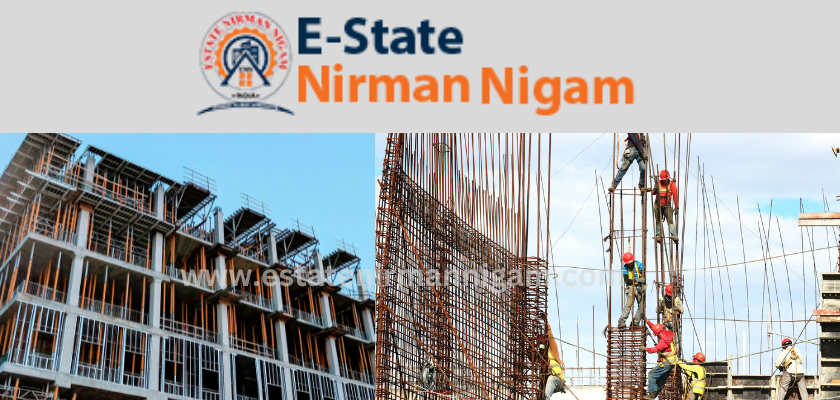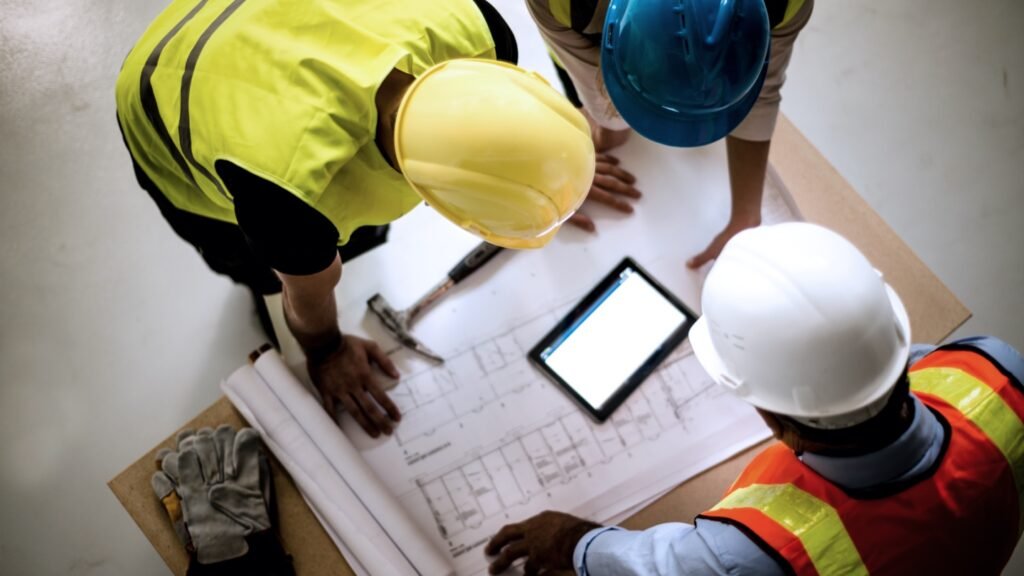E-state Nirman Nigam Project Training In The District Of Pilibhit
E-state Nirman Nigam construction industry is a dynamic sector that requires skilled professionals to execute projects efficiently and effectively. Construction project training plays a crucial role in equipping individuals with the necessary knowledge and skills to succeed in this field. In this guide, we will explore various aspects of construction project training In All District Of Pilibhit.

1.Importance of Construction Project Training:-
Skill Development:-Training programs help individuals acquire technical skills, such as blueprint reading, project management, and safety protocols.
Quality Assurance:-Proper training ensures that construction projects meet industry standards and regulations, leading to better quality outcomes.
Safety:-Training in safety procedures reduces the risk of accidents and injuries on construction sites, promoting a safer work environment.
Efficiency:-Well-trained professionals are more efficient in their roles, resulting in smoother project execution and timely completion.
Career Advancement:-Training provides opportunities for career advancement and professional growth within the construction industry.

2.Key Components of Construction Project Training:-
Technical Skills:-Training programs cover a range of technical skills, including construction methods, material knowledge, and equipment operation.
Project Management:-Project management training teaches individuals how to plan, organize, and oversee construction projects from inception to completion.
Safety Training:-Safety protocols and procedures are a critical component of construction project training to prevent accidents and promote a culture of safety on-site.
Communication Skills:-Effective communication is essential in the construction industry. Training programs often include modules on communication skills, teamwork, and conflict resolution.
Regulatory Compliance:-Training ensures that construction professionals understand and comply with relevant regulations, codes, and standards.
3.Methodologies of Construction Project Training:-
Classroom Training:-Traditional classroom-based training involves lectures, presentations, and discussions led by instructors with expertise in the field.
Hands-On Training:-Hands-on training allows participants to practice skills in a simulated or real-world environment, such as construction sites or workshops.
Online Learning:-With advancements in technology, online learning platforms offer flexibility and accessibility for construction project training. These platforms may include video tutorials, interactive modules, and virtual simulations.
On-the-Job Training:-On-the-job training involves learning while performing tasks under the supervision of experienced professionals. E-state Nirman Nigam approach provides practical experience and allows for immediate application of knowledge.
Blended Learning:- Blended learning combines various training methodologies, such as classroom instruction, online modules, and hands-on practice, to provide a comprehensive learning experience.

4.Future Trends in Construction Project Training:-
Virtual Reality (VR) and Augmented Reality (AR):-VR and AR technologies are increasingly being used in construction project training to create immersive learning environments and simulate real-world scenarios.
Mobile Learning:-Mobile learning apps and platforms enable construction professionals to access training materials anytime, anywhere, using their smartphones or tablets.
Gamification:-Gamification techniques, such as quizzes, challenges, and rewards, make learning more engaging and interactive, enhancing knowledge retention and motivation.
Data Analytics:-Data analytics tools can track and analyze training performance metrics, allowing organizations to assess the effectiveness of their programs and tailor them to meet specific needs.
Personalized Learning:-Personalized learning algorithms adapt training content to individual learners’ needs, preferences, and skill levels, maximizing learning outcomes and efficiency.
E-state Nirman Nigam Construction project training is essential for developing the skills, knowledge, and competencies required to succeed in the construction industry. By investing in comprehensive training programs and embracing innovative methodologies, construction professionals can enhance safety, quality, and efficiency in project execution, driving success and growth in the E-state Nirman Nigam.

